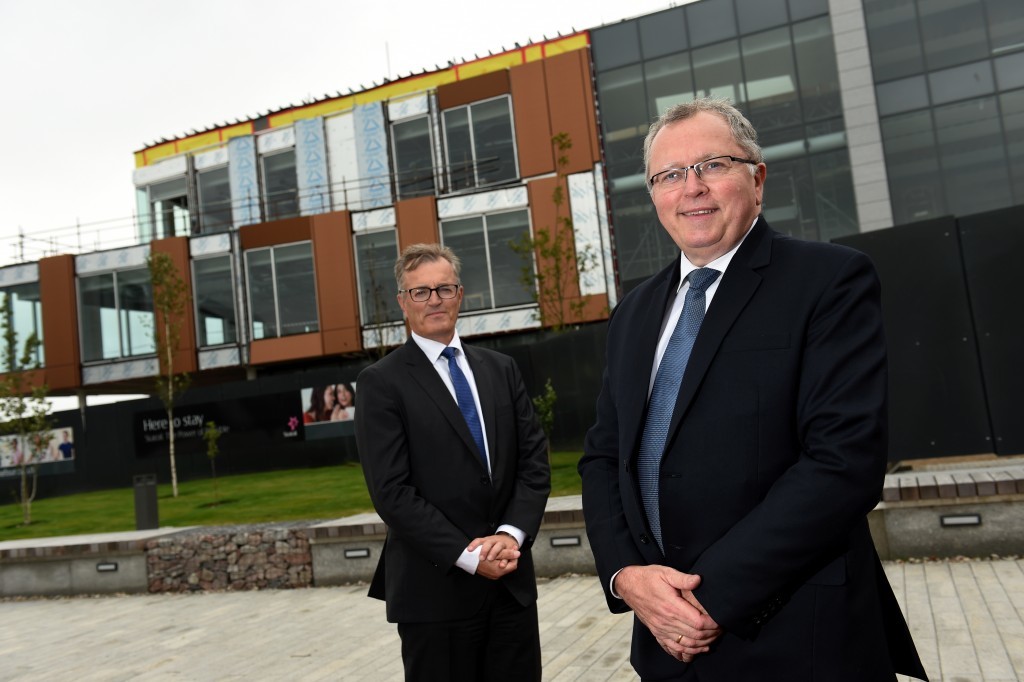
Statoil chief executive Eldar Saetre made his first trip to the firm’s Aberdeen base today.
The company leader visited the Norwegian operator’s new premise in Kingswells before sitting down to talk with Energy Voice.
The industry leader had one clear message – there’s still plenty left to find in the North Sea.
“We believe even in mature provinces the industry can still make the mistake of leaving too early,” he said.
“We have the capability to take a second look and see if there’s anything we haven’t seen before.”
Statoil’s Mariner project is the largest field development on the UKCS in more than a decade, with a gross investment of more than $7billion.
It is expected to produce more than 250million barrels of heavy oil during its 30-year lifespan, with average plateau production hitting around 55,000 barrels per day.
But it’s not the only card Statoil will play in the UK basin, according to Saetre.
“It’s a proven basin so we know the hydrocarbon plays work and that’s a very good place to start,” he said.
The firm is currently working to overhaul its heavy oilfield development, Bressay, in a bid to pass sanction, has nine new licences to leverage and is currently managing two new exploration wells.
“We think it’s important that the government continues to look at ways to incentivise the industry for exploration, because it all starts with exploration.”
Gunnar Breivik, who heads Statoil’s Aberdeen operation, echoed Saetre’s sentiment.
“We don’t believe Mariner will be our only asset in this area. We hope Bressay will come and there’s new drilling to consider,” he said.
Mariner’s jacket, the biggest Statoil has ever tackled, is due to be installed on site in five days’ time.
Breivik said: “It’s going to be a big milestone for us, because it’s going to be the first proof that we have a platform and it’s our responsibility to take that project forward.
“We have to do the best for Marnier and run it as cheaply and efficiently as possible. We can take the best from the UKCS and the best from Norway and think is there a better way to do this?”
The better way includes drafting up new contracts with the supply chain, including an incentive-based deal with Schlumberger.
He added: “It’s a contract based on performance. They take some risks and they get some rewards if they perform well.
“We’re creating a dialogue and asking them what they want to do. We’re encouraging them to challenge us because they have the experience.
“It’s a culture change because most of them are used to being told you do this and do this, because we pay.”
Recommended for you
